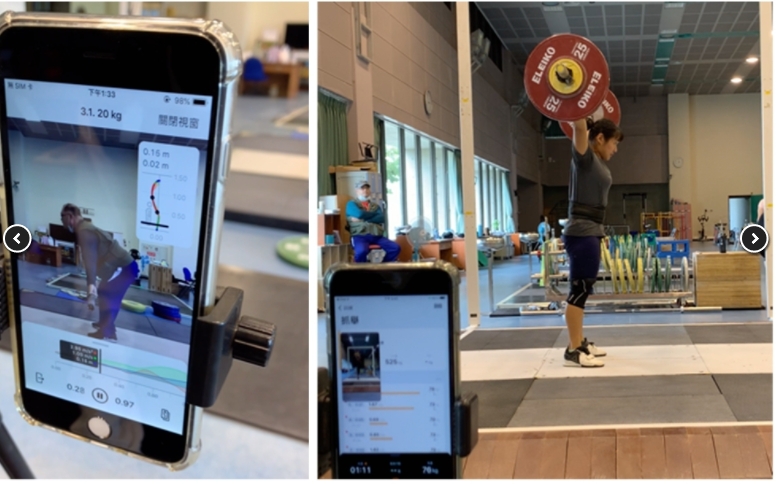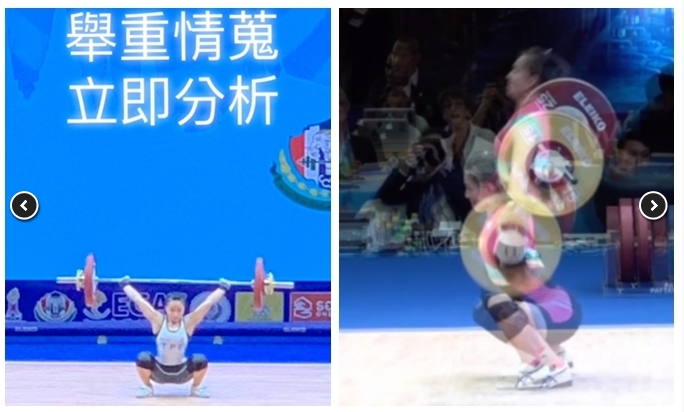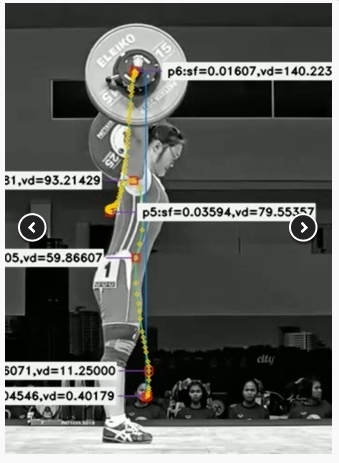ORIGINAL ARTICLE:本校公共事務中心 (2021.08.05)
(English Version Powered by ChatGPT, Edited by Serena H.)
Taiwan’s national team participated in this year’s grand event, the 2020 Tokyo Olympics, with Kuo Hsing-Chun winning the gold medal in the women’s 59kg weightlifting, and NTNU student Chen Wen-Huei from Department of Physical Education and Sport Sciences earning a bronze in the women’s 64kg.
This marked the fourth consecutive Olympic Games in which the weightlifting team won a gold medal, bringing their historical total to ten Olympic medals, surpassing the record of nine medals previously held by the taekwondo team, thus establishing weightlifting as Taiwan’s new medal powerhouse on the Olympic stage.
Behind these successes, the supporting sports science team also played a vital role, by employing an intelligent barbell trajectory tracking system to help coaches track and correct athletes’ movements. Through quantitative data analysis and observation in changes of the movement paths, they effectively helped prevent training-related injuries.
Four Consecutive Golds: Weightlifting Becomes Taiwan’s Olympic Medal Powerhouse
Taiwanese athletes shone brilliantly at the Tokyo Olympics, winning a total of 2 gold, 4 silver, and 5 bronze medals—a record-breaking 11 medals in a single Olympic Games, marking Taiwan’s best Olympic performance in history.
The weightlifting team alone contributed one gold and one bronze at Tokyo, raising their total 10 Olympic medals, with medals and golds won in four consecutive Olympics.
The athletes’ stellar performance on the world stage reflects years of relentless training and pursuit of excellence.
As early as before the 2016 London Olympics, Tzyy-Yuang Shiang, the lead of the National Sports Training Center’s Sports Science Team, had already collaborated with sports science experts Chiu Hung-Ta and Hsu Ching-Ting to address training gaps observed by coaches, using video analysis technology to develop a real-time technical feedback system for weightlifting.
To prepare for the Tokyo Olympics, the Ministry of Science and Technology’s “Precision Science Research Program” weightlifting team joined forces with the National Training Center’s sports science professionals and applied biomechanics principles to assist coaches and athletes in refining techniques with precision toward perfection.
Project leaders Ho Wei-Hua and Hsu Ching-Ting corresponded to the needs of national weightlifting head coach Lin Ching-Neng, built upon the previous feedback system technology and integrated AI to optimize the barbell trajectory tracking system, which provides coaches with precise technical feedback for weightlifting.
This initiative originated from the daily training needs of coaches and athletes and was developed and tested by sports science experts. It was also personally tested by the National Training Center’s head coach, who confirmed the effectiveness of the barbell trajectory tracking system. So that this powerful training tool for coaches could then be applied into practical use in athletes’ daily training.
AI Coach Offers Tactical Insights on Opponents
After gaining the trust of coaches and athletes and proving effective in addressing training issues, the team further developed an AI Coach system to gather intelligence during official competitions, formulate real-time tactics, and provide immediate data on opponents for coaches to use as strategic reference.
The AI Coach system is built around video analysis and machine learning technologies, with the goal of providing real-time technical analysis for athletes, offering real-time intelligence during competitions and feedback in daily training.
To ensure practical use of the AI Coach system, the system was tested at the 2019 Weightlifting World Championships, where it was used for real-time intelligence gathering.
The Ministry of Science and Technology’s team supported the national team in Thailand and conducted match analysis and intelligence work. They used video analysis technology to instantly analyze Taiwan athletes’ performance on-site, while low-key gathering real-time data on strong foreign opponents.
With the AI Coach system employing machine learning to interpret barbell trajectory data, they performed real-time trajectory diagnosis and instantly delivered results to coaches as references for tactical planning.
(Source: Department of Physical Education and Sport Sciences / Editor: Hu Shih-Tse / Proofreader: Hu Shih-Tse)

國訓中心舉重總教練親身使用槓鈴軌跡追蹤系統的實際功效。

運科小組在2019年舉重世界錦標賽偕同舉重國家隊一起前往泰國進行國際賽事的情蒐分析。

舉重教練與運科專家一起進行國際賽事的表現分析